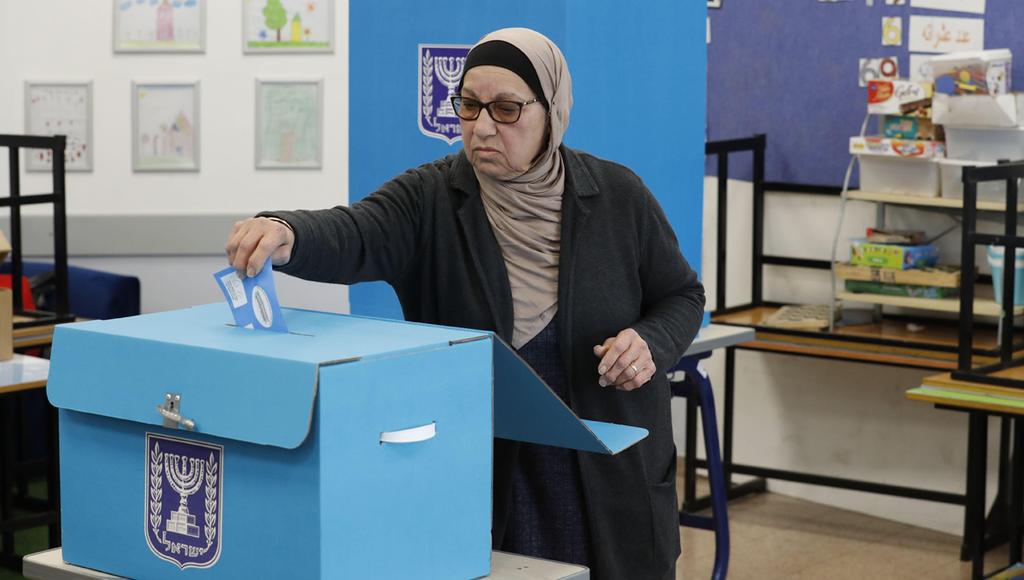Getting your Trinity Audio player ready...
The Joint List's strength grows more and more after each round of elections, a fact that some may find intimidating and threatening to the status quo in Israel.
But taking a moment to really ponder the significance of increased voting expansion in the Arab sector, it is clear that this is actually very good news for all of us.
For years Arab citizens of Israel simply did not participate in the elections - out of sheer desperation - and alienation from the country, its institutions and its society only grew.
So as more and more Arab citizens choose to cast their vote in the elections, they are essentially signaling that they are ready to become part of the democratic game, shedding their mantle of a separate, uninterested distant faction within Israel.
As more Arab votes are cast, Israel will gain from hearing more varied voices within the Arab society.
The growth in voter numbers means a growing sense of responsibility, both of the Jewish majority towards the minority, and of the Arab minority towards the majority of which it is a part.
That means that even a de facto right-wing government must rethink its established path, and come up with ways to form new partnerships with the Arab sector.
3 View gallery


Ayman Odeh speaking at the Joint List headquarters after the publication of exit polls in the March 2 election
(Photo: AFP)
The choice of Israel's Arabs to run in an ethnicity-based bloc rather than one grounded in ideology is the direct result of the incitement against the sector, which was used as a tool by two politicians in order to boost their careers: Yisrael Beytanu's Avigdor Liberman, and Likud's Benjamin Netanyahu.
Liberman insisted the electoral threshold be raised in order to wipe out the Arab parties, inadvertently causing them to unite under one banner.
Liberman has in fact pushed MK Hiba Yazbek of Blaad, the radical party that supports a binational state, into the arms of Ayman Odeh, the leader of the far-left Hadash, by trying to paint all Israeli Arabs as supporters of terrorism.
Netanyahu for his part claimed the Arab population is "flocking to the ballots" on the day of the 2015 elections, establishing the "Bibi or Tibi" mentality - a reference to the prime minister and Arab MK Ahmad Tibi.
The Arab population simply followed Netanyahu's own argument ot its conclusion, assuming that if the prime minister himself thinks they can change the political map, they most probably can - and they will.
Think of the possibilities if Israel had an Arab party that not only discouraged terrorism, but also declared its recognition of the Jewish state.
How many opportunities lay in an Arab health minister (Tibi is even a Hebrew University-trained doctor) - for there is no difference between an Arab intern in Jerusalem and a Jewish intern in Tel Aviv.
The same can be said about an Arab welfare minister - for there is no difference in the challenges facing a Jewish mother of eight from Bnei Brak and an Arab mother of eight from Rahat.
Israeli Arabs have changed their view: they no longer refer to themselves as a sector separate from Israeli society, and this is a point of view that should be encouraged.
There his also an important lesson to be had from the small religious-Zionist party Yamina, whose internal fighting and lack of appeal for most of Israeli society resulted in only six seats in the next Knesset.
When Yamina was led by Naftali Bennett, he acted to both unite the religious sector and present the party as a compelling alternative to the rest of the options, and the party received 12 seats. Today, however, the party is in a continuous downwards spiral.
It is in every Israeli's best interests for the Arab community to "flock to the ballots."
Whether they form new and varied parties or find their place in existing ones, letting one fifth of the population slide back into alienation would be a missed opportunity for us all.



